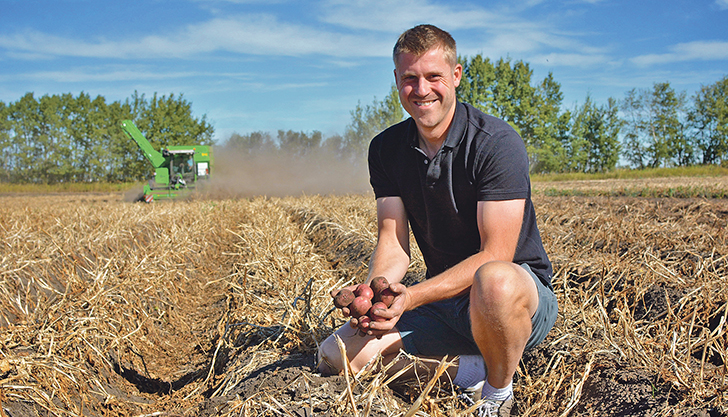Bakker’s parents’ company, Solanum International, opened the doors to launch Earth Apples. Solanum works with seed potato farmers in the Stony Plain and Spruce Grove region, offering 40 to 50 varieties.
“We were getting a lot of requests for potatoes through our Solanum website, which at the time, we weren’t set up to do,” Bakker said. “So we then thought this might be an opportunity to diversify because we have so many neat varieties, and there is this growing interest in urban farming or just growing on balconies.”
Earth Apples uses 10 of Solanum’s varieties. It sells seed potatoes that look and taste unique, as well as ones that are generally easier to grow. They are sold in one kilogram boxes and each box contains directions so consumers know how to grow them.
“I try to fine-tune my portfolio with varieties that serve a certain purpose,” Bakker said. “We try not to have varieties that are in the same category, and that seems to work pretty well.”
He said the potatoes are harvested around late summer and then stored until February, when they are retrieved for processing.
When it’s time to bag, Bakker uses a machine with a conveyor belt to help sort and weigh the potatoes.
He said business is growing at a steady pace.
“It’s not explosive growth, but we don’t want that because your quality goes down,” he said. “The goal is always to put out a good quality product, and I’m pretty particular in how I want it to look.”
But expansion is happening at a more moderate pace. He is looking to expand in California and make his way into Ontario. Last season, Earth Apples were sold to consumers in Western Canada.
“Potatoes have become highly commoditized and we want to try to venture from that,” Bakker said. “That comes with some risk, but so far the feedback has been pretty good.”


